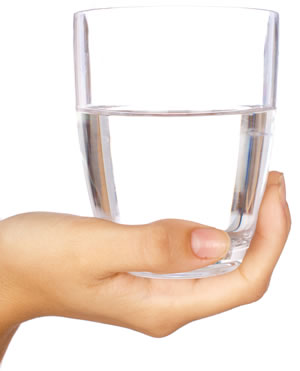8 glasses of water a day? It’s just a myth
You’ve heard it over and over again: Drink eight, 8-ounce glasses of water a day to stay hydrated and healthy. It’s true that you need to stay hydrated, but the idea of 64 ounces of water a day is actually a myth.
 Guidelines for water consumption first appeared in the U.S. in 1945, when the Food and Nutrition Board of the National Academy of Sciences recommended the consumption of 2.5 liters of water per day. Frederick J. Stare, an influential 21st century nutritionist who defined the four food groups, was one of the first to recommend that humans consume six or so 12-ounce glasses of water a day.
Guidelines for water consumption first appeared in the U.S. in 1945, when the Food and Nutrition Board of the National Academy of Sciences recommended the consumption of 2.5 liters of water per day. Frederick J. Stare, an influential 21st century nutritionist who defined the four food groups, was one of the first to recommend that humans consume six or so 12-ounce glasses of water a day.
But actual water isn’t always necessary. Your foods contain plenty of it. For example, a baked potato is 75 percent water. Other beverages, such as juice and milk, also count towards your total.
And yes, caffeinated beverages also count, according to Dr. Stanley Goldfarb, a nephrologist at the University of Pennsylvania who reviewed research claims on drinking eight glasses of water and studied how the kidneys handle it.
Two good ways to determine whether you’re getting enough hydration are simple and common. Runner’s World magazine says thirst is a good indicator: if you’re thirsty, drink something. Runner’s World also suggests that you check the color of your urine. If it’s clear or light yellow, you’re fine; if it’s the color of apple juice or darker, you need to drink something — especially if you’re involved in endurance activities such as running a race.
Experts at the Mayo Clinic list four factors that influence your need for additional fluids:
- Exercising so hard that you sweat.
- Environment, such as hot or humid weather or high altitude.
- Illness or health conditions, such as fever, vomiting or diarrhea.
- Pregnancy or breast feeding.
Other myths debunked by Runner’s World:
Plain water is best. If you’re involved in intense activity on a hot day, you may need a sports drink that has electrolytes and sodium to fully replenish your system.
You can “detox” your body by drinking lots of water. Dr. Goldfarb says, “There is no evidence that excess water makes your body more clean. If anything, drinking too much water can slightly impair the ability of the kidneys to filter blood.”
You can’t drink too much. It’s rare, but yes, you can. Too much water can cause symptomatic hyponatremia, a condition where the sodium levels in the blood become dangerously low.
